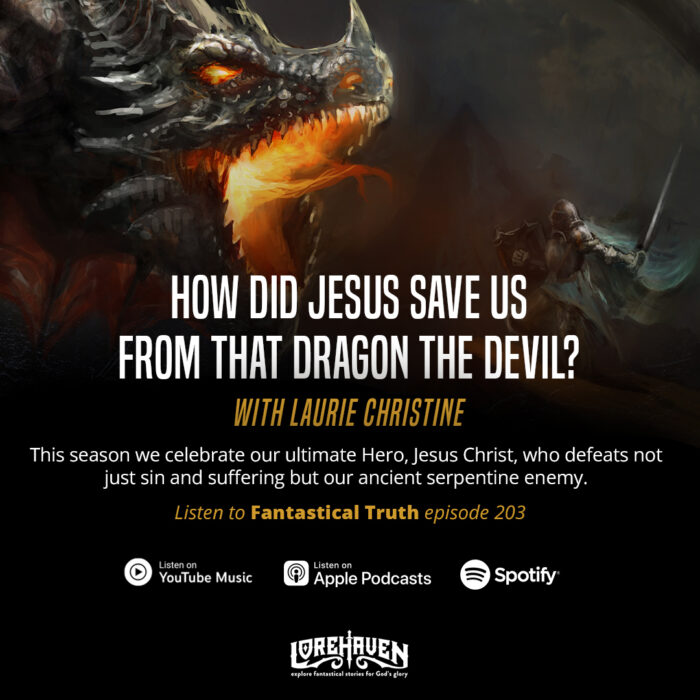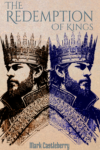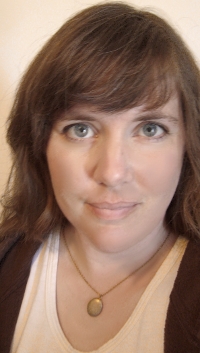Speculative Fiction and Transcendence
 Greetings, Earthlings and other denizens of the internet-enabled universe. My name is Cathi-Lyn Dyck, and I am a highly unorthodox individual.
Greetings, Earthlings and other denizens of the internet-enabled universe. My name is Cathi-Lyn Dyck, and I am a highly unorthodox individual.
I’m a freelance editor. I also write a huge variety of things. But in terms of storytelling, my keyboard and I find ourselves constantly returning to the world of speculative fiction.
It’s not so much that I’m weird. (I swear it isn’t.) Ever since picking up Dr. Zhivago a few years ago (totally not weird, right?), I have this theory that truly powerful, classic fiction functions as a thought lab to test out deep principles of serious consequence. We can write every theological, social or political treatise possible, but those sterile ideas are forced to fight for survival by the combined forces of the storyworld’s mess and its rulebook. It’s for this reason that the crafting of storyworld can be so much more than a passing instance of interior decor. Escape to another world we do, but we come back as changed as a Pevensie child.
Living In Another World
There are various functions for storyworld. In formulated genres, such as mystery or romance, elements of setting often function as a reward to the reader for picking up a book even though they know how it’s going to end. The balance of rewards-per-page and reliable conclusion is key to successful commercial work.
In a mystery, it’s the weird clues, the unusual paths of deduction created by the setting’s quirks, the subtle hints embedded in character. In a romance, it’s the chance to encounter idealized places, times or lifestyle elements which enhance the escapism and the known payoff of the inevitable wedding on the last page.
Used in this way, storyworld is not so much the main carrier of the idea. And it’s not always in SF either. Larry Niven is a master at creating rules of play that don’t necessarily reveal their mind-bending function until the story’s conclusion tumbles from the equation. It’s a puzzle-solving adventure like a mystery, only without a defined ending. Christian author Kirk Outerbridge will probably (we can hope) remain perennially popular for his ability to design a fresh and invigorating take on wildly popular tropes. It’s the way he sets an indispensable spiritual element within those tropes that makes him so unique.
Seeking the Timeless
But the other use of storyworld is to test out or exposit a philosophy. It’s the analysis performed by Bill Myers’s Eli. It’s the driving force behind P.A. Baines’s Alpha Redemption. It’s the mystery enclosed in Ted Dekker’s Circle Trilogy, in that strange volume where, when the page is turned, it simply says “Ha!”
By encountering an idea in a new setting, with different rules and messes, we’re able to test out its transcendence. If it’s truly transcendent, our world and the storyworld blend to one. A literary Golden Section is attained, the purest moment of truth possible. Reality and imagination achieve the correspondence so utterly lacking between them in day to day life, and we are never the same after. Something of the divine consonance has touched us.
Must a book have some overt spiritual element to achieve this? Not at all. For me personally, Stuart Stockton’s work stays in the mind long after, because it contrasts the power of friendship with the pain of war. Anything overridingly true—love, hate, mortality, grief, laughter, and the profound ways in which they combine—carries with it that marker of the First Cause, shaking us awake to the simple, stark fact that truth exists.
But while we might examine these things in radical ways, we don’t fundamentally adulterate the nature of love, hate, selfishness and their cohorts in the pursuit of entertainment. It’s not as entertaining. And so I think it’s vital to maintain the purity of the spiritual idea.
Coming Home Changed
Any doctrine should indeed be shown, not preached. But still, we as Christian writers are tasked with maintaining an unending pursuit of Scripture’s great ideas in their purest form. When we dilute the Great Idea on the excuse of entertainment, it’s no longer the Great Idea.
The moment we place our ideas in another world, our cultural trappings are stripped away. You know, those incidents and interactions which tend to lend a limited concept some familiarity, and therefore a false measure of strength. Without those, there is no padding of excuses left. We are faced with the challenge of bettering our own thoughts of God. The story drags it from us.
Which is great. Because it means the adventure is on, and it’s not just in some other world. It’s here and now. And if we succeed in our quest, others will go home changed too.
Till next time,
Cat



































Why did I already know you’d have the explanation for the Sabbath vs. escapism discussion?
😉
I’m addicted to the way you use words, by the way. Just sayin’. “Tropes”. Only a musician would know how appropriate that word is where it is.
Thanks, Esther. Ironically, I haven’t been in on that discussion…I hereby confess my whimsical state of obliviousness… 🙂
The writer with the clearest and deepest theological outlook on this stuff that I know of is Marc Schooley. He lives and breathes these ideas, and I owe him due credit for being a spiritual mentor to my writing journey.
“The moment we place our ideas in another world, our cultural trappings are stripped away.”
This is interesting. I’ve recently decided that I can’t write contemporary fiction, because I don’t live there. I was born almost at the middle of last century. There has been a lot of change since then. My cultural trappings have been stripped away by ordinary life. So should I write historical fiction? That would be one way of placing my ideas in another world — our own past.
But I get so annoyed by people talling me what they understand about that past, when clearly they don’t have the faintest clue. So the only sensible thing is to take that past and put it sideways into another world which doesn’t pretend to be this one. It will be interesting to see whether people consider the world I create an alien or familiar one.
Ken, I love that you say you don’t live there (here, I suppose). As a child of the 70’s, my best memories are of 1940s furniture, 1960s classic TV, and the 20th century social perspectives that defined my growing up. My children’s world has no connection to my childhood world, except to the extent that we bring it to them.
“My cultural trappings have been stripped away by ordinary life.”
Even with a bit of a time gap between you and me, I know what you mean. I think this is what causes people to fear the future. On the other hand, if we have something transcendent, we ourselves are not subject to the false security of culture, not so? I find that a comforting thought in the face of change.
“That would be one way of placing my ideas in another world — our own past.”
I love the way you put that. Isn’t that the truth…
“But I get so annoyed by people telling me what they understand about that past, when clearly they don’t have the faintest clue. So the only sensible thing is to take that past and put it sideways into another world which doesn’t pretend to be this one.”
Well, when a culture passes on, it becomes subject to the terms of abstract truth and abstract perception. There are certain facts about your world which are undeniable and inarguable. I would encourage you to maintain an unapologetic annoyance, 🙂 and refuse to dilute those things. I think the key to a sense of transcendence in storyworld is knowing its iconic thoughts.
“It will be interesting to see whether people consider the world I create an alien or familiar one.”
Yes, indeed. Best wishes with your project.
[…] for me is a mystery), I’m also trying my best to be serious over at SpecFaith. First post: Speculative Fiction and Transcendence. Thanks, Marc, for several great conversations that have helped clarify these […]